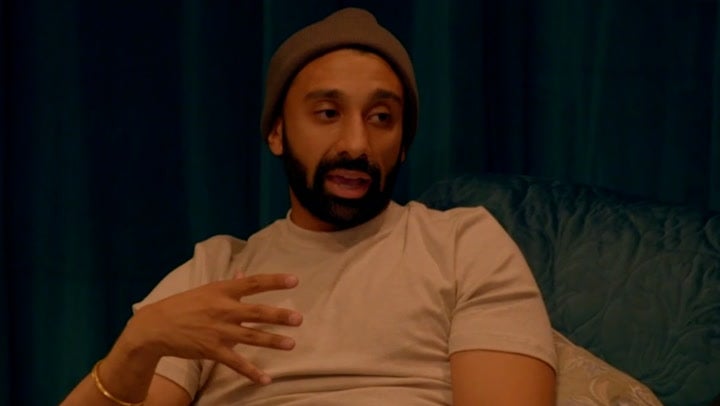How to win The Traitors, according to psychology experts
A guide on how to play a perfect strategic game on the BBC show, for both Traitors and Faithfuls
We might only be in January, but The Traitors has already secured its place in 2025’s TV hall of fame.
The third season of the Scotland-based BBC One competition show has dominated group chats, headlines and social media trends since it began.
Watching cocky Traitors torpedo their own game and Faithfuls consistently mistaking their fellow Faithfuls for their opponents has the nation more rapt than ever.
But there are plenty of viewers who are watching every episode with the belief that they could play a better game themselves – whether a Traitor or a Faithful.
So what is the correct way to play the game and walk away with a share of £120,000, regardless of your role? We spoke to experts in behaviour, psychology and human deception to find out how to win The Traitors.
Anyone looking to apply for season four, you are welcome…
How to win as a Traitor
The Traitors operate in a small group, evading the suspicions of the Faithful contestants to save themselves from banishment, while also making clever decisions about which innocent contestant to murder each night.
Here are four tips from professionals in human behaviour on how to play the best Traitor game...

Read the room
According to Dr Sören Henrich, a Lecturer in Forensic Psychology at Manchester Metropolitan University, it’s not just about having a good story and sticking to it. To be a good Traitor, a player has to know how to adjust their story and perspective depending on who they’re speaking to.
He explains: “While research shows that demeanour is not a reliable sign of a liar, the myth persists, and other players will look for this. [Coping with this] does not only require high levels of emotional intelligence but also creativity and openness to adjust your approach.”
Eye contact
It’s all in the eyes… or so we think. Dr Hannah Fawcett, also a lecturer at Manchester Metropolitan University, says that the widespread line of poor eye contact being a giveaway for lies is nothing but a myth. But the middle of gameplay is not the time to make a case against shifty eyes – instead, it’s a Traitor’s best bet to play into the belief.
Dr Hannah explains: “It’s commonly held that liars look up and to the left, and avoid eye contact. There isn’t any evidence behind this, but as people believe it, maintaining eye contact is a good way to convince others you are telling the truth.”

Remember your story
This might seem like a given, but if you’re a Traitor and trying to establish yourself as the opposite, make sure to remember your reasons for throwing others under the bus! Jamie Nixon, a professional poker player at Grosvenor Casinos, knows all about pulling the wool over an opponent’s eyes in order to finish on top – and that requires mentally keeping tabs on tall tales.
He explains: “Often in poker, you might have to bluff three or four times in a row. It’s vital to keep track. Similarly, a Traitor will need to make sure their story links together. What has been said that morning, and what has been said the following week, all need to add up.”
Keep it concise
Another key to success as a Traitor is keeping some cards close to your chest. “There is some truth to the adage ‘If you give them enough rope they’ll hang themselves,’” Dr Hannah notes. “The more you talk, the more likely you are to make a mistake.”

How to win – as a Faithful
As a Faithful, a midnight murder is ever-looming. Though there’s no way to fight it if a Traitor decides to end your run in the competition, here are ways that Faithfuls can beat the Traitors while they have the chance...
Lay off the heavy interrogation
According to Dr Hannah, an easy way to ruin sniffing out a Traitor is by going too hard on the offence. Go easy, and a Traitor will reveal themselves... maybe. She explains: “Giving a possible Traitor the third degree will lead to defensiveness and make it harder to work out if they are telling the truth. Allow your suspect to give a full account in their own words – and pay close attention to the details.”
Make logical accusations
To get far as a Faithful, you’ll need more convincing tactics to convince others of a Traitor’s identity than “the vibes are off”. Take Jaz in series two, for example – he was convinced that Paul is a Traitor, but had to build his case to get others on his side.
Poker star Nixon says: “If you randomly call someone’s bluff and it doesn’t make sense why you’ve done it, then your opponent will figure it out. To be convincing, you need some logic.”

Keep it chilled
We’ve seen what happens when a Faithful works themself into a tizzy for no reason – poor Brian got himself banished after a bizarre freak-out at the round table. To get far as a Faithful, you have to keep a cool head.
“Especially in group settings, anxiety, stress, and uncertainty can become nearly contagious,” says Dr Sören. “Understanding that some of the experienced stress is our brain just mimicking the feelings of others can be a powerful antidote. The right combination of confidence in your own skills and adaptability can lead to successful coping.”
The Traitors airs on BBC One and BBC iPlayer on Wednesday, Thursday and Friday at 9pm.
Join our commenting forum
Join thought-provoking conversations, follow other Independent readers and see their replies
Comments
Bookmark popover
Removed from bookmarks